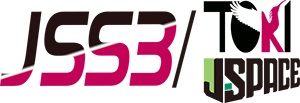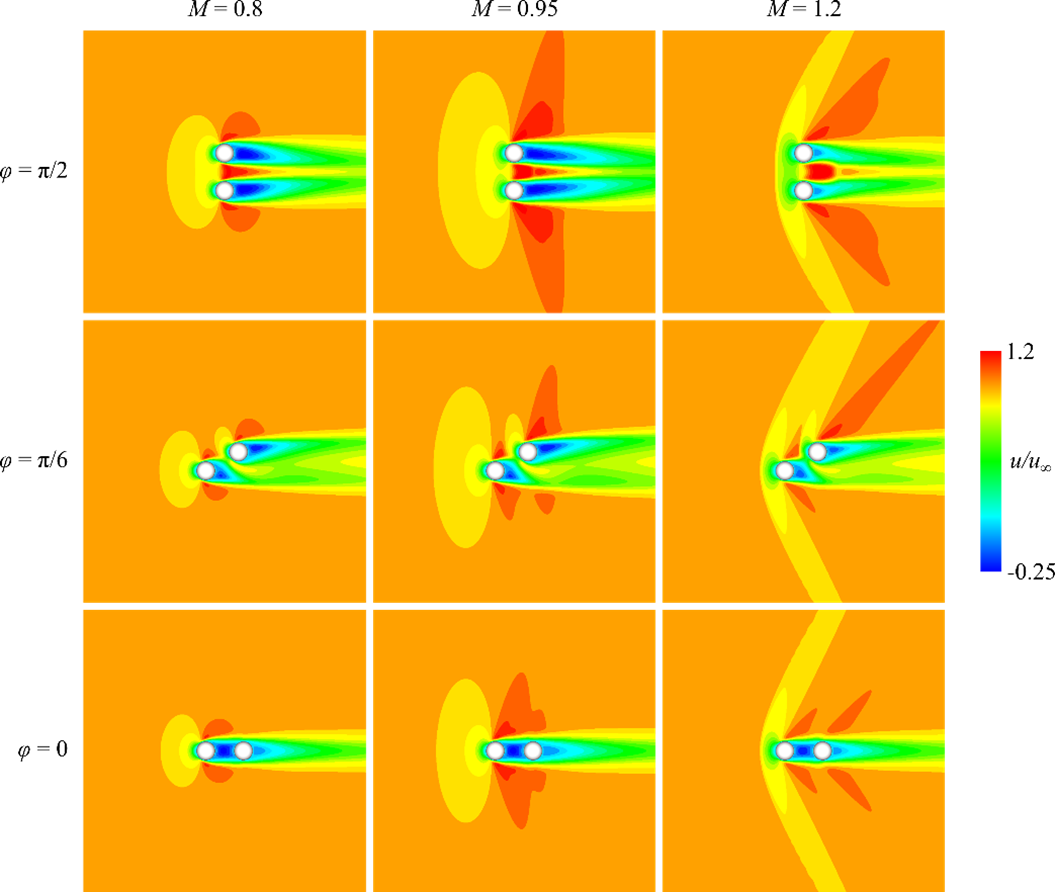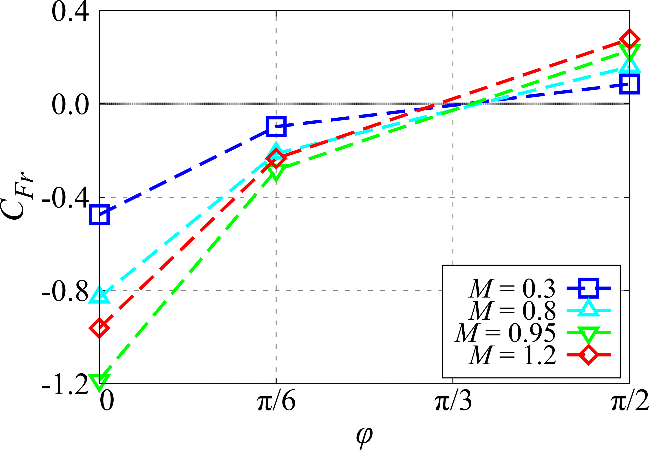Study on fluid dynamic interference between particles in high-speed flows
JAXA Supercomputer System Annual Report February 2021-January 2022
Report Number: R21EACA55
Subject Category: JSS Inter-University Research
- Responsible Representative: Takayuki Nagata, Project Assistant Professor, Tohoku University
- Contact Information: Takayuki Nagata(nagata@tohoku.ac.jp)
- Members: Taku Nonomura, Takayuki Nagata
Abstract
Compressible flow around twin particles is investigated by the direct numerical simulation of the Navier-Stokes equations at Reynolds number of O(10^2). The objective of the present study is to obtain fundamental insight into the effects of aerodynamic interference between particles in subsonic to supersonic flows. Influences of the aerodynamic interference on the lift, drag, and moment coefficients of the particles are determined, and the flow physics is investigated based on detailed information, such as velocity and pressure distributions. The calculation condition is designed for conditions in which particles in a high-speed flow pass through shock waves, turbulence, and shear layer. In addition to the knowledge of high-speed flow around single particles obtained in our previous research, the aerodynamic interference between particles will be clarified to obtain fundamental knowledge for the high-fidelity modeling of compressible gas-particle flows.
Reference URL
N/A
Reasons and benefits of using JAXA Supercomputer System
In the present study, direct numerical simulations are conducted and a large-scale parallel calculation is required.
Achievements of the Year
Due to aerodynamic interference between particles, the structure of the recirculation region and shock wave are changed significantly. In particular, in the case of a diagonal arrangement, one side of the downstream particles is strongly influenced by the upstream particles, and the asymmetry of the flow field is strong (Fig. 1). Figure 2 shows the apparent attractive and repulsive force coefficients. From the figure, the particles are attracted or separated due to aerodynamic interference, depending on the relative angle of the particles. In addition, the effect of interference is small under low Mach number conditions, but the effect is strong under high Mach number conditions. In particular, in the case of an in-line arrangement, the apparent attractive force is tripled at the Mach number of 0.95 compared to the case with the Mach number of 0.3, and particles tend to strongly gather in the flow direction.
Publications
N/A
Usage of JSS
Computational Information
- Process Parallelization Methods: MPI
- Thread Parallelization Methods: OpenMP
- Number of Processes: 143 – 388
- Elapsed Time per Case: 200 Hour(s)
JSS3 Resources Used
Fraction of Usage in Total Resources*1(%): 0.30
Details
Please refer to System Configuration of JSS3 for the system configuration and major specifications of JSS3.
| System Name | CPU Resources Used(Core x Hours) | Fraction of Usage*2(%) |
|---|---|---|
| TOKI-SORA | 7167970.09 | 0.35 |
| TOKI-ST | 0.00 | 0.00 |
| TOKI-GP | 0.00 | 0.00 |
| TOKI-XM | 0.00 | 0.00 |
| TOKI-LM | 0.00 | 0.00 |
| TOKI-TST | 0.00 | 0.00 |
| TOKI-TGP | 0.00 | 0.00 |
| TOKI-TLM | 0.00 | 0.00 |
| File System Name | Storage Assigned(GiB) | Fraction of Usage*2(%) |
|---|---|---|
| /home | 52.50 | 0.05 |
| /data and /data2 | 10752.00 | 0.11 |
| /ssd | 35.00 | 0.01 |
| Archiver Name | Storage Used(TiB) | Fraction of Usage*2(%) |
|---|---|---|
| J-SPACE | 22.95 | 0.16 |
*1: Fraction of Usage in Total Resources: Weighted average of three resource types (Computing, File System, and Archiver).
*2: Fraction of Usage:Percentage of usage relative to each resource used in one year.
ISV Software Licenses Used
| ISV Software Licenses Used(Hours) | Fraction of Usage*2(%) | |
|---|---|---|
| ISV Software Licenses(Total) | 0.00 | 0.00 |
*2: Fraction of Usage:Percentage of usage relative to each resource used in one year.
JAXA Supercomputer System Annual Report February 2021-January 2022




